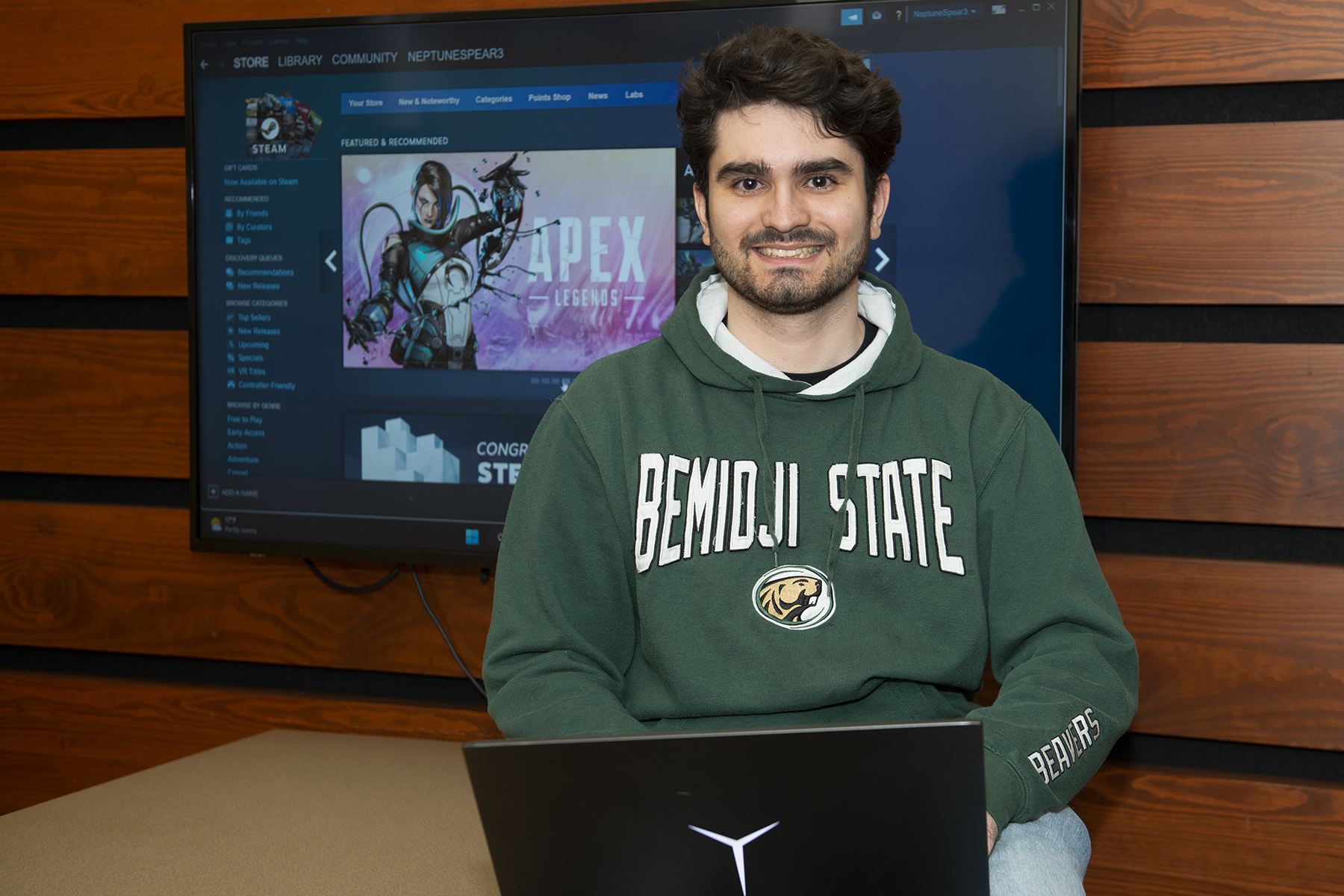
Benjamin Vossen, a senior computer information systems student from Richmond, has been gaming most of his life. When he learned that it often costs $100 in real-world currency to receive specific virtual, in-game items through loot boxes in popular online video game, Apex Legends, it spurred an honors program capstone project and invitation to present at a Twin Cities computing and technology conference.
Loot boxes are randomized rewards typically accessed by completing specific gameplay tasks or purchased with real-world currency. Loot boxes are often compared to gambling since players purchase the boxes in hopes of “winning” a unique item, with no guarantees of actually receiving it.
Vossen, who is a member of Bemidji State University’s Honors Program, decided to focus his senior capstone research project around the issues concerning loot boxes.
“I thought [$100] was a huge sum of money to pay for an in-game item on a free-to-play game. I wanted to see how widespread and possibly harmful loot box systems in gaming currently are,” Vossen said.
Vossen’s paper, Evaluating Ethics of Loot Boxes in Gaming, examined two ethical issues surrounding the gameplay mechanic — underage gambling and gambling addiction.
“The research combines the two fields my degree encompasses, business and computer science,” Vossen said. “I’m leveraging the ethical points of view from a business perspective as well as a technological viewpoint allowing for my research to be more balanced and complete.”
Vossen used scholarly sources and news articles to examine current regulatory practices in gaming and demonstrate the financial and psychological consequences loot boxes can have on players. He also gave recommendations about how game developers could improve potentially unethical loot box systems.
Dr. Hamdan Alabsi, assistant professor of business administration and Vossen’s advisor, was impressed by his research and encouraged him to submit his findings to the Fourth Colloquium on Analytics, Data Science, and Computing (CADSCOM) Conference, hosted by the Twin Cities Chapter of the Association of Computing Machinery, on Nov. 19 in Edina.
Vossen was invited to present his research via Zoom, which was a new experience for him. He had attended similar conferences before, but never presented at one.
“I was nervous, but happy, when I saw people had chosen to attend my presentation. The audience was great and had very insightful questions and comments about my topic,” he said.
He appreciated the opportunity to put his coursework into practice in a real-world, professional setting during the CADSCOM Conference.
“I was surprised about the attendance I had for my presentation. It’s a niche topic I didn’t know had such widespread interest,” Vossen said. “The ethical issues with loot boxes are often only known by the gamers who play the games, so I’m glad to see others are looking into what current practices are occurring.”
About Computer Information Systems
The Computer Information Systems (CIS) major combines the best of business administration and computer science into a unique hybrid program that provides a solid technical education in computer science and real-world experience in business and management.
Contact
- Hamdan Alabsi, assistant professor of business administration
